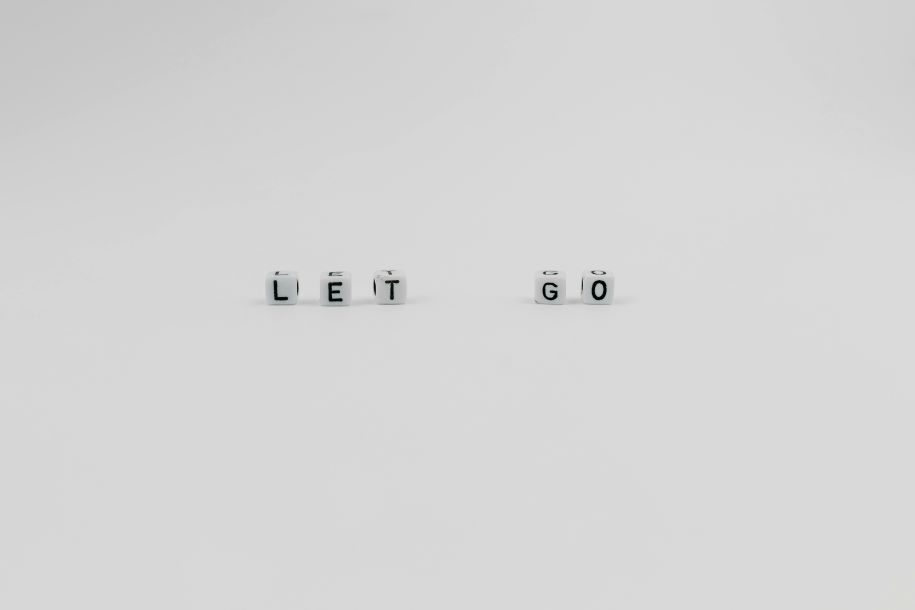
People hold onto many things for all sorts of reasons, but the intriguing question is why? What makes us so insecure that we have to cling to someone or something to the point that it becomes part of our identity? Psychology Spot explains that the true meaning of holding onto something implies developing an excessive and obsessive attachment to something or someone so that we completely lose perspective and objectivity. If you look at the numerous layers of your life, you can probably relate to some degree. It’s usually linked to an emotional, psychological, or practical reason. Here are some common areas that are known for holding many back:
*Sentimental items: photos, letters, gifts, heirlooms
*Clothing: old clothes or sentimental outfits
*Objects of accomplishments: trophies, awards, diplomas
*Hobby-related items: art, sports, memorabilia
*Technology: old phones, computers, electronics, cables, accessories
*Furniture/Home Goods: inherited pieces, “what if” scenario appliances, decorations, tools
*Documents/Paperwork: old bills, receipts, journals, planners, magazines
*Digital Data: emails, photos, files
*Toys/Childhood items: toys, art projects, clothes
*Relationships/Emotional Attachments: old friendships, romantic relationships, acquaintances
*Career – jobs and business relationships
Possessions
Individuals retain these items for comfort, identity, financial, and emotional security, even when the usefulness of the objects has diminished over time. If you’ve watched the show “Hoarders” and were terrified, then that’s a great thing! The International OCD Foundation states that 2%-6% of the population are hoarders. It’s also more common in older adults ages 55-94. Usually a traumatic, life-changing event can trigger hoarding tendencies, and potentially, we could all be one step away from that type of behavior. It’s always good to be mindful of what you’re bringing into your home and more importantly, why.
One time I bought my son a bucket cap that had baked beans printed on it. I’m not sure why it was a priority at that moment, but Amazon made it really easy to purchase. I thought about it this week when I put the hat in the donation box. It was only worn once about five years ago. Getting rid of perfectly good commodities that I spent my hard-earned money on is bothersome, but necessary. It felt like it was such a waste of time and money. These reasons cause us to hesitate when we’re determining whether to get rid of items or not.
Buying unnecessary possessions is usually to fill a void for something that is missing in your life. Consumers buy material objects to fulfill a social status or identity. Impulse or convenience buying is all too common especially with the ease of online shopping. Our culture is very good at influencing with the help of marketing and advertising. Society holds onto possessions for the following reasons:
Sentimental value
Identity and self-expression
Security and control
Fear of loss or regret
Social status & validation
Hoarding tendencies or mental health
My mom passed away when I was 17 and I still have her set of China. I only use it a few times per year, but I always look forward to it. It brings back the most amazing, fondest childhood memories of the holidays, especially Thanksgiving, Easter, and Christmas. I wouldn’t trade those dishes for anything!
Relationships
When it comes to ending relationships, many struggle with the reality of not having that person in their life even if they provide no real value. This applies to romantic, social, or business relationships, friendships, or acquaintances. Fear or regret holds people back from pursuing their full potential. I believe it has something to do with low self-esteem or a lack of confidence. Or maybe it’s about how they were treated as a child.
My social circle has gotten smaller, and it’s been a good thing for me because now I focus on those who bring positivity to my life. Sometimes relationships are based on convenience or habit and after a certain point, there’s a realization that it just doesn’t make sense any longer. Here are some of the reasons we hold on to relationships:
Emotional attachment
Fear of loneliness
Hope that the person will change
Loss of identity
Shared history and memories
Fear of failure
Co-dependency
Cultural or social pressure
Many unhappy couples stay together so their social life remains intact, or they don’t want a reduction in lifestyle. They often fear the loss of friendships in their current social circle and worry about what others will think. Downsizing assets along with a decrease in finances can be overwhelming. The hope for improvement or fear of loneliness are only a few reasons that make it difficult for couples to part ways.
This doesn’t just apply to romantic relationships, but also friendships that people sustain (on social media or convenience) because of FOMO (fear of missing out.) Think highly of yourself and you won’t tolerate unhealthy people or situations. As you read these statements, ponder the various types of relationships you’re in and if they apply to you:
If they wanted to spend more time with you, they would.
If they wanted to do nice things for you, they would.
If they wanted to keep in touch more often, they would.
If they wanted to compliment you, they would.
If they wanted to advocate for you, they would.
If they wanted to offer help or support, they would.
If they wanted to promote you, they would.
Letting Go – Wrap Up
Some folks haven’t learned to be happy with themselves, so they look for happiness in other people. If somebody wanted to treat you better, they would. They are totally capable but choose not to. We’re always chasing happiness within individuals or things that we think will complete us. Material items make us happy, but only temporarily. The emotion wears off and we’re left with a feeling of emptiness.
It’s better to invest in experiences rather than possessions. The memories and emotions tied to events often improve over time and lead to long-lasting happiness. Adventures can command personal growth because they challenge us and push us out of our comfort zones. Traveling and learning new skills can broaden our perspectives and develop new abilities. These memories also lead to improved social connections that contribute to overall well-being and happiness, more so than owning things.
Tangible and digital possessions can create clutter and require maintenance and physical or emotional burden. How did 12,779 emails pile up in my inbox? Why didn’t I maintain it from the beginning? The more we practice decluttering the better we get at it. I donate to charities often when I realize items are no longer useful. Here are some ways to work through your “letting go” challenges:
Set goals – if you purchase an item, then donate an item
Build new habits – limit time with people that don’t bring value
Try new things – exercise, hobbies, fun activities
Embrace failure – activities you’ve always wanted to try, foster resilience
Be self-aware and comfortable with who you are – focus on self-improvement
Fear, doubt, and “what ifs” hold people back from accomplishing amazing things. Stop blaming others and accept the fact that you can’t change people. Hold yourself accountable for your part in the relationship or situation. Accept people for who they are and place them in your life where they belong.
Perform a brain dump and write down all the things you want to let go of. Letting go means you’re facing reality. It also means that you’re in charge, not someone or something else. It’s time to let go of all the bullshit that’s weighing you down. You only have one life, and it’s quite short. Don’t waste years being held down by things that aren’t good for you. Putting yourself first is a form of self-respect and creating physical distance is self-love. You are above what’s bringing you down!
Comment on your “letting go” experiences. Stay tuned for an upcoming article on decluttering. Subscribe to my newsletter on the homepage of my blog or send me a message to nourishandflex@gmail.com and I can add you.
Image by Tara Winstead

